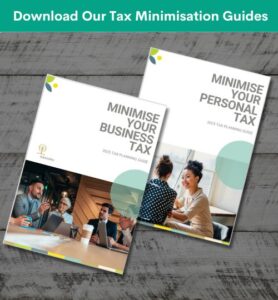As part of the Federal Government’s climate policy, the government is rolling out several new initiatives to help encourage individuals and businesses to zero-emission vehicles. The programs include the Zero Emission Vehicle subsidy and the Fringe Benefits Tax (FBT) removal from electric vehicles with low-zero emissions.
What has changed?
One key update is that plug-in hybrid electric vehicles (PHEVs) will no longer be eligible for the FBT exemption from April 1, 2025. As this date is approaching, the exemption now applies exclusively to Battery Electric Vehicles (BEVs).
What types of vehicles are included in the scheme?
The FBT exemption applies to Battery Electric Vehicles (BEVs), provided they fall below the Luxury Car Tax (LCT) threshold for fuel-efficient vehicles, which has increased to $89,332 for the 2023-24 financial year.
What does this mean for business owners?
The FBT exemption applies to eligible electric vehicles purchased after July 1, 2022, provided they are below the $89,332 threshold.
This means employers no longer need to pay FBT on electric vehicles provided as part of a salary package. For example, a Tesla Model 3 valued at $64,000 would have previously resulted in an FBT charge of around $12,500, according to Treasury calculations. Under the exemption, this cost is removed, making EV salary packaging a more attractive option.
It is important to note, however, that while the vehicle is exempt from FBT, employers must still determine the notional taxable value of the benefits provided and include it in their employee’s reportable fringe benefits amount (RFBA). This must be reported through Single Touch Payroll or on the employee’s payment summary. While the RFBA is not taxable, it may impact eligibility for certain government benefits and concessions, such as family assistance and child support assessments.
What does this mean for individuals?
For an individual with a gross income of $95,000, using a 36-month novated lease through their employer to purchase a 2024 Tesla Model Y, the estimated reduction in take-home pay would be around $1,364 per month, compared to $1,863 under previous rules.
Additionally, the growing adoption of electric vehicles means that more affordable second-hand options will become available as leased cars enter the resale market in the coming years.
How can Morrows Help?
If you are considering purchasing Electric Vehicles for your fleet or yourself and would like to understand the tax implications, please reach out to your Morrows Advisor. Our experienced advisors can help calculate the FBT and help you decide if it’s the right choice based on your circumstances.
 Want to learn how to minimise your 2025 Tax Bill?
Want to learn how to minimise your 2025 Tax Bill?
Our advisors have prepared two 2025 Tax Minimisation guides. These guides outline the various strategies we can consider to help reduce your personal or business tax bill this financial year.
Fill in your details below, to gain access to these guides for free.





